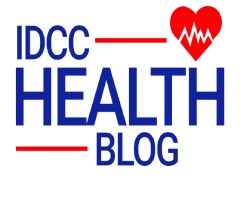Why Do I Need a Primary Care Doctor for My Health?
Have you ever wondered why do I need a primary care doctor if you already feel healthy or only visit specialists when something goes wrong? The answer may not be as obvious as it seems. Behind that question lies a key to better health, early detection, and long-term well-being—yet many people overlook it. What makes a primary care doctor so essential? Let’s uncover the reasons.
TL;DR
Primary care doctors are essential for long-term health. They provide holistic care by knowing your medical history, preventing illness through checkups, vaccines, and lifestyle guidance, and coordinating specialized treatments when needed. Their personalized, continuous approach builds trust, enables early diagnosis, reduces unnecessary visits, and saves both time and money. Ultimately, they improve quality of life while making healthcare more efficient and sustainable.
Compare the best primary care doctors in Brooklyn

What Are the Main Benefits of Primary Care Doctors?
Basic care seeks to address health in a comprehensive way, covering physical, psychological, and social well-being. Specialists are essential as the first point of contact, coordinating diagnoses, treatments, rehabilitation, health promotion, and anticipating disease.
| Benefit | Description |
| Prevention and early detection | Timely identification of diseases for better outcomes. |
| Comprehensive and continuous care | Personalized care considering history and lifestyle. |
| Patient-doctor relationship | Trust and effective long-term communication. |
| Coordination with specialists | Organized and efficient access to specialized care. |
| Health education | Promotion of healthy habits and prevention strategies. |
| Saving time and money | Avoids unnecessary visits and reduces overall healthcare costs. |
Having a doctor brings benefits that extend beyond treating isolated illnesses. They are allies in maintaining and strengthening long-term well-being.
They Know Your Medical History
The specialist has access to your medical history, a record that brings together all your health information. This document makes it possible to identify patterns in your health and make accurate decisions about your care. Access is limited to healthcare personnel directly involved in your treatment and is protected by professional confidentiality.
Benefits of Having Access to Your Medical History
More effective prevention: Risks can be identified early and addressed before they worsen.
Personalized treatments: Detailed information prevents repetition and allows more accurate decisions tailored to your needs.
Saving time and money: Detecting problems early enables timely treatment and reduces costs from future complications.
Comprehensive and coordinated care: Access to your record ensures a complete approach, including treatment and follow-up.
When your primary care doctor knows your medical history, it allows for more complete and personalized care. This helps prevent risks, optimize treatments, and save resources, ensuring continuous care focused on your well-being.
They Help Prevent Illness, Not Just Treat It
Through regular checkups, vaccinations, and early detection of risk factors, potential problems can be identified before becoming serious conditions.
Benefits of Prevention
- Regular checkups: Detect changes early before they turn into diseases.
- Vaccinations: Protect against preventable diseases and strengthen immunity.
- Early risk detection: Recognizing risks in advance reduces complications.
- Healthy lifestyle education: Guidance on diet, exercise, and habits that support balance.
- Trust and follow-up: Ongoing contact fosters closer and more effective care.
Primary care strengthens health by focusing on prevention. With checkups, vaccines, education, and continuous follow-up, it helps avoid complications, reduces costs, and promotes better quality of life at both individual and community levels.
They Coordinate Your Overall Care
Primary care acts as the gateway to the healthcare system. As the first point of contact, it ensures that every need—physical, mental, or social—is considered. Through an organized strategy, it plans and connects the necessary services, guaranteeing continuous, high-quality care.
Main Advantages of Coordination
- Comprehensive care that considers all aspects of health.
- Organized planning of basic and specialized services.
- Continuous follow-up that improves treatment effectiveness.
- Trust built through a long-term relationship with one doctor.
- Improved quality of life through constant care.
Coordination ensures complete and organized care. By integrating follow-up and specialist access, patients receive personalized, continuous, and focused attention.
They Offer Personalized, Long-Term Care
A lasting relationship based on comprehensive and continuous care allows the doctor to know the patient’s context in depth. This makes it possible to adapt treatments to individual needs, strengthen prevention, enable early diagnosis, and manage conditions more effectively.
Benefits of Personalized Long-Term Care
Early and accurate diagnosis
Deep knowledge of the patient helps detect conditions at an early stage.
Communication and trust
Consistent contact encourages open dialogue and improves care.
Specialist coordination
Referrals are organized for continuity and efficiency.
Prevention and follow-up
Constant monitoring anticipates risks and maintains control over health.
Resource optimization and savings
Preventing complications and promoting healthy habits reduces costs and maximizes system resources.
Personalized long-term care strengthens the doctor-patient relationship, supports early diagnosis, and improves prevention. Continuous follow-up enhances treatments, ensures better coordination, and contributes to a higher quality of life and more efficient use of resources.
They Save You Time and Money
Primary care protects patient well-being while reducing the time and resources required to manage more complex conditions.
Economic and Time-Saving Benefits
- Reduced costly treatments: Detecting illnesses early avoids advanced stages requiring expensive procedures or hospitalizations.
- Fewer work absences: Better health minimizes disability and productivity losses.
- Chronic disease management: Continuous care helps control long-term conditions, avoiding complications.
- Fewer unnecessary visits: Primary care doctors handle many needs directly, reducing extra consultations.
- Emergency savings: Prevention and timely follow-up decrease reliance on costly emergency services.
Primary care is an investment in well-being and efficiency. By emphasizing early diagnosis and continuous follow-up, it helps prevent high costs, reduces hospital stays, and minimizes time lost to complications, offering more accessible and sustainable care.
Key Takeaways
- Primary care doctors provide holistic care that addresses physical, mental, and social well-being, not just isolated illnesses.
- They know your medical history, which helps identify risks early, personalize treatments, and ensure coordinated, efficient care.
- Prevention is central: through regular checkups, vaccinations, early detection of risks, and lifestyle education, they help avoid serious complications.
- They coordinate overall care, acting as the main point of contact and connecting patients with specialists when needed, ensuring continuity and quality.
- Personalized, long-term relationships foster trust, enable early and accurate diagnoses, and improve prevention and treatment outcomes.
- They save time and money by reducing costly hospitalizations, unnecessary specialist visits, emergency care, and productivity losses from illness.
- Overall impact: primary care doctors enhance quality of life, strengthen community health, and make healthcare more sustainable and efficient.
Sources
- Bodegård, H., Helgesson, G., Juth, N., Olsson, D., & Lynøe, N. (2019). Challenges to patient centredness–a comparison of patient and doctor experiences from primary care. BMC Family Practice, 20(1), 83.
https://link.springer.com/article
- Murdoch, J., Salter, C., Ford, J., Lenaghan, E., Shiner, A., & Steel, N. (2020). The “unknown territory” of goal-setting: Negotiating a novel interactional activity within primary care doctor-patient consultations for patients with multiple chronic conditions. Social Science & Medicine, 256, 113040.
You may also like
- Can a Specialist Be a Primary Care Physician?
- Can You Have a Primary Care Doctor in Another State?
- What Do you Do When Your Doctor Ignores Your Pain?
IDCC Health Services: Kings Hwy 445
445 Kings Hwy, 2nd Floor,
Brooklyn, NY 11223
Email: info@idcchealth.org
Phone: 718-715-0613
IDCC Health Services: Stillwell Ave
2846 Stillwell Ave,
Brooklyn, NY 11224
Email: info@idcchealth.org
Phone: 718-715-0613
IDCC Health Services: Kings Hwy 201
201 Kings Hwy,
Brooklyn, NY 11223
Email: info@idcchealth.org
Phone: 718-715-0629
